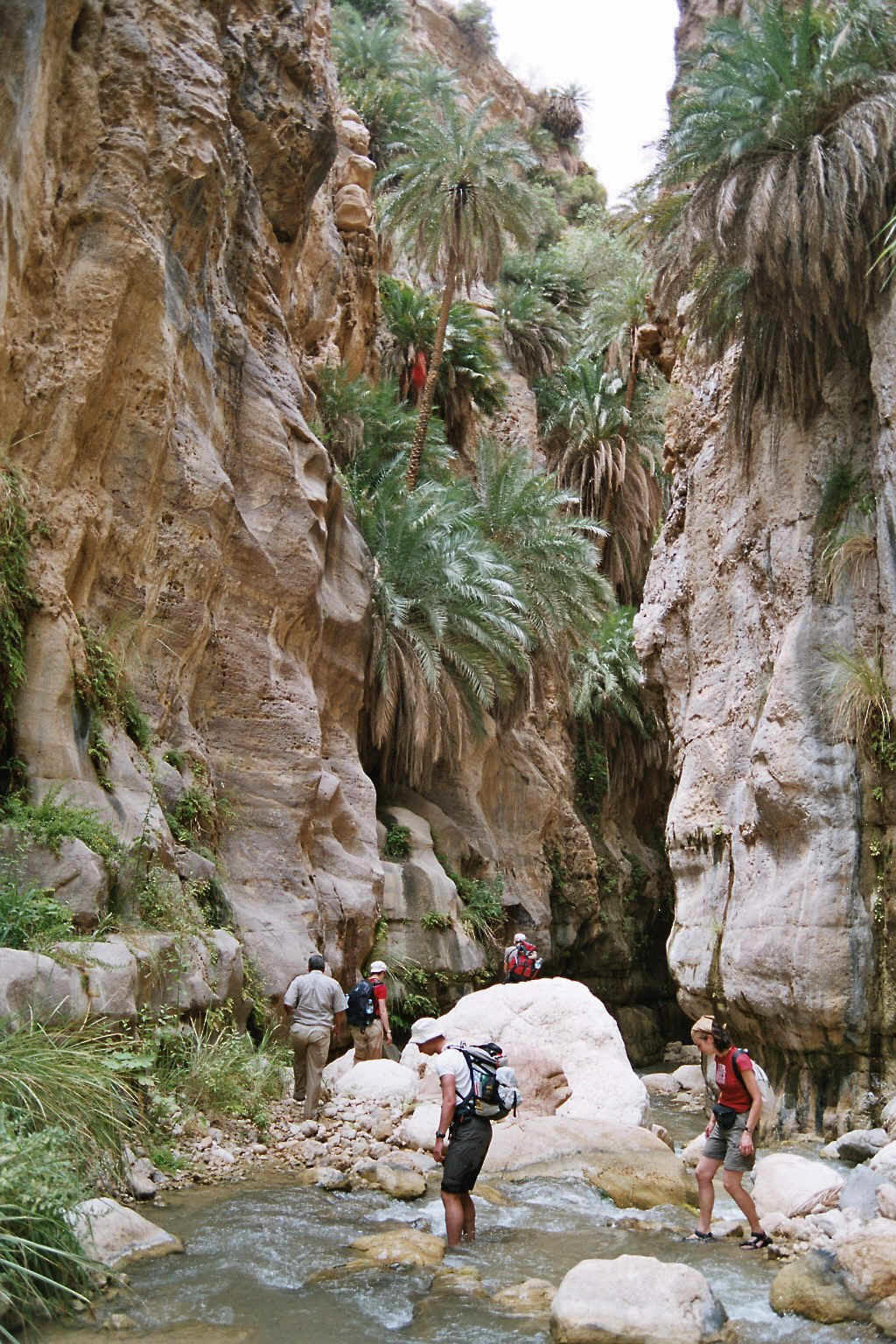|
Wadi Hasa

Wadi Hasa sports magnificent hanging gardens, narrow gorges and hot
springs. Its upper reaches are carved into white limestone, creating a
playground of giant boulders. A dramatic change of scenery is displayed
along its lower course, where the wadi cuts a spectacular canyon in red
sandstone. The drainage basin of Wadi Hasa extends over 3,200 sq. km,
far bigger than most of the wadis in Moab or Edom and second only wadi
Mujip. Its discharge is about 20 million cubic m per year and the
temperature of its hottest spring is about 54 C. A rare tropical tree (Dalbergia
sissoo), not known elsewhere in Jordan grows in its bed.
Wadi Hasa is identified with the biblical Zered River, the traditional
border between Moab and Edom. It is depicted on the mosaic map of Madaba.
At the upper reaches of Wadi Hasa, atop a prominent hill, is the ruined
Nabataean temple of Khirbet Tannur. Just beneath it a new dam is being
built. Though the dam is constructed above the point where the wadi’s
flow commences, and is meant to catch only floods, it is hard to foresee
its influence on the lower reaches of the wadi.
|
![]()